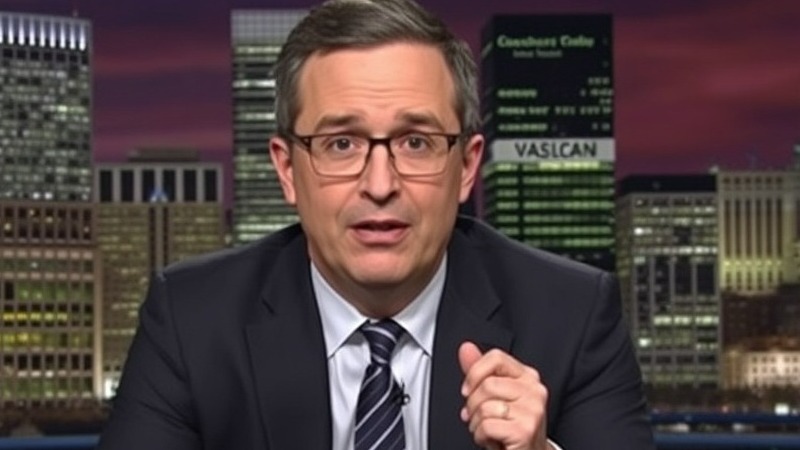
Understanding the ICE Crackdown: A Closer Look
In a recent episode of Last Week Tonight, John Oliver tackled the controversial actions of the Immigration and Customs Enforcement (ICE), highlighting the Trump administration's ambitious and controversial goal of deporting one million undocumented individuals within a year. This number starkly contrasts with the 400,000 deportations that occurred in 2015, which was already considered high.
Despite the lofty goal, Oliver pointed out that the reality doesn’t match the administration's narrative. As of the show's taping, only around 280,000 deportations had been carried out, making the million-target appear increasingly unattainable. Oliver humorously compared this situation to a fabricated aspiration: promising to arrest a staggering number of celebrity impersonators, only to find that they simply do not exist in that volume.
The Shift in ICE Strategies and Its Consequences
To meet these inflated deportation goals, the administration's approach has drastically shifted. Oliver revealed that instead of focusing on genuine threats, ICE has been directed to cast a wider net, targeting individuals in common public spaces like Home Depots and 7-Elevens. This shift includes the utilization of local police officers, the Border Patrol, and even the National Guard in efforts to expand their reach.
While such tactics may seem strategic for ICE, Oliver emphasized the societal implications of this reallocation of resources from policing serious crimes to immigration enforcement. The FBI has been reportedly instructed to prioritize immigration cases, leading to a lapse in investigations concerning white-collar crimes and sexual abuse, directly questioning the government's priorities under the current administration.
Implications for Society: Reflecting on Governance
This drastic focus shifts the narrative around immigration enforcement, suggesting that underlying injustices may thrive while immigration officers pursue minor infractions. For instance, Oliver noted how the government seems to be more lenient toward serious offenders, raising ethical concerns about the effectiveness and focus of law enforcement agencies. Such contradictions highlight a disconnection between political promises and effective governance.
The Broader Conversation: Immigration and Its Challenges
The imperative to streamline ICE’s enforcement actions raises questions about the immigrant experience in America. Digital nomads, who often travel and work across borders, must consider how these policies impact not just undocumented individuals but also the communities they become part of. Undocumented individuals play vital roles in many sectors, from agriculture to service industries, and their erasure would likely create significant disruptions.
Reflecting on Cultural Context: The Role of Satire in Activism
John Oliver’s comedic approach serves as a powerful tool that engages a broad audience, forging connections between serious issues and common understanding. His satire provides a lens through which viewers can examine the complexities of immigration policies and their direct impacts on society. It compels us to see beyond the headlines and recognize the humanity at stake.
An Invitation to Engage: Understanding the Complexity of Immigration Issues
The ongoing debates surrounding immigration can feel overwhelming, but being informed allows for meaningful discussion and activism. Understanding the complexities and nuances of laws like those surrounding ICE can empower both digital nomads and residents alike to advocate for just policies in their communities.
In conclusion, John Oliver's take on ICE policies not only exposes troubling trends in immigration enforcement but also galvanizes audiences to question government priorities. As international travelers and digital nomads continue to navigate cultural landscapes, their awareness and activism can contribute to evolving discussions on immigration justice.
Stay informed about immigration policy and its impacts, and consider how you can make a difference in ensuring fair treatment for all.
 Add Row
Add Row  Add
Add 




Write A Comment